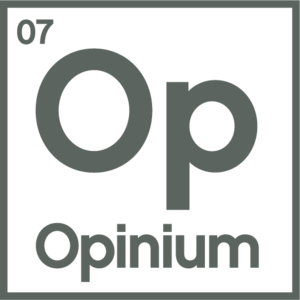Matilda Andersson, group managing director, Crowd DNA
Brands are more interested in cultural futures. The C-suite has become interested in cultural shifts (because of how quickly people’s lives, aspirations, values and behaviours have changed in the past two years) and there’s a greater urgency to understand how people’s lives and needs are changing now and in the future.
Caroline Frankum, global CEO, profiles division, Kantar
For me, this has been the more concerted and collaborative efforts between agencies and clients we have seen this year on ensuring the data we collect, the insights we provide and the strategies we build truly reflect the diverse world we serve.
This includes the ‘representation in research’ work that the Market Research Society has been leading on redefining ‘nat rep’ in the UK to ensure greater transparency on what is being collected and best practice guidelines on how national representation now needs to evolve beyond the currently limited dimensions of age, gender and region to ensure important characteristics like ethnicity, sexual orientation, and disabilities are also included and represented.
Shazia Ginai, CEO, Neuro-insight
This year has felt less like a year of development of methodology and tech and more a year of the development of resilience and empathy. This year saw a rise in burnout and I believe that from that has come a deeper understanding of what businesses and individuals need to do to put in place strategies to avoid this in the future, to shift toxic cultures so staff can be retained, and to rise strong from some tough times
Sabine Stork, founding partner, Thinktank
For me, it’s neither a technology nor a methodology but the fact that the UK industry seems to be finally taken diversity seriously. As something of a foreign square peg in a British hole myself (from a working class background to boot) I used to find the fairly identikit types speaking at UK research conferences bewildering. Well done to the MRS, not only for the more ethnically diverse mix at this year’s conference but also for attempting to tackle the class divide. The apprenticeship programme is a great idea and a real step forward in trying to get a more diverse talent pool into our industry.
Ryan Howard, marketing science consultant
Artificial intelligence is finally maturing into a credible qualitative tool, opening the door to what we once imagined our future might look like. It will take some doing for ‘big qual’ to survive its own hype, and years for it to reach a tipping point. When it does, it is set to dovetail elegantly with other methodologies. I’d also like to follow up with more machine learning dashboards next year, so I will be keeping one eye on Google Pathways as a potential ‘next big thing’.
Ben Shimshon, co-founder and managing partner, BritainThinks
Large-scale digital and hybrid deliberative – the push online, combined with a new appetite for ‘ground up’ policy development, has led to huge innovation in this space. Deliberative communities that combine auto-ethnography; peer research; own-time knowledge building; super-iterative deliberation; and co-creative approaches. All with more representative, more diverse participant groups.
Graham Idehen, director customer success, Emea, Lucid
It’s been incredible to see the industry come together to put more focus on nat rep quotas, to ensure that all groups, including minorities, are appropriately represented and aligned to the national population within all research conducted in the UK. It has been so rewarding to be a part of these efforts, which will go a long way to bringing greater diversity and inclusion and ultimately futureproofing the industry.
Barrie Brien, CEO, STRAT7
The really significant shift over the past year has been from speed of data to speed of insight. As a sector, research has traditionally fallen back on how quickly we can pull data together.
One of the fall outs of the pandemic was the unequivocal understanding that getting data together quickly is meaningless without the insight that makes it actionable in a meaningful, bottom-line way – and at speed. It’s not easy but technologies and methodologies that enable research and insight professionals to deliver that for clients are rising to the fore now, and that’s a good shift when it comes to making sure we’re future fit.
Frederic Charles-Petit, CEO, Toluna
The most significant development this year has been around technology automation, and it being fully embedded in methodology for agile, on-demand research. The consumer insights industry is undergoing a rapid transformation and is now fully focused on delivering hyper-segmentation, hyper-personalisation, at scale, and in real-time to enable brands to deeply understand and empathise with their consumers to deliver products they truly want.
Jane Frost, CEO, MRS
Digital tools have opened up new employment opportunities for people with responsibilities at home, including carers and parents, and have meant I’m on the Circle Line at rush hour a lot less (something I’m very grateful for). The continued merging of in-person and online methods of working is a major cultural shift and I’m excited to see how they balance out as we head into 2022.
Nick Baker, global chief research officer, Savanta
Covid-19’s legacy is in part the increased demands on turn-around times for insights. Whether genuine agility or just plain speed, from quick-turn quantitative assessments to online qualitative communities, the need for speed has increased further.
Andrew O'Connell, managing director UK, Dynata
The shift towards automation and platforms has continued, fuelled by AI playing a larger role in the research space. There are probably 30-plus platforms now, vying for market positioning and those corporate clients who wish to democratise insights to their global stakeholders.
Joe Staton, client strategy director, GfK
Having everyday tools and techniques to help brands predict and project future market opportunities for categories and consumers alike, democratised, shared and actioned throughout the organisation, rather than just being held at top level.
Jane Rudling, managing director of insight and analytics, Unlimited
The growing importance of behavioural science has been striking in 2021. It is becoming integrated into everything we do, especially as clients seek to navigate the lifestyle changes that Covid has brought. When blended with other methodologies like neuroscience, these powerful insights allow a unique way to uncover how humans make decisions.
This is the first in a series of articles over the next few weeks reviewing the main trends of 2021 and looking forward to 2022.








0 Comments